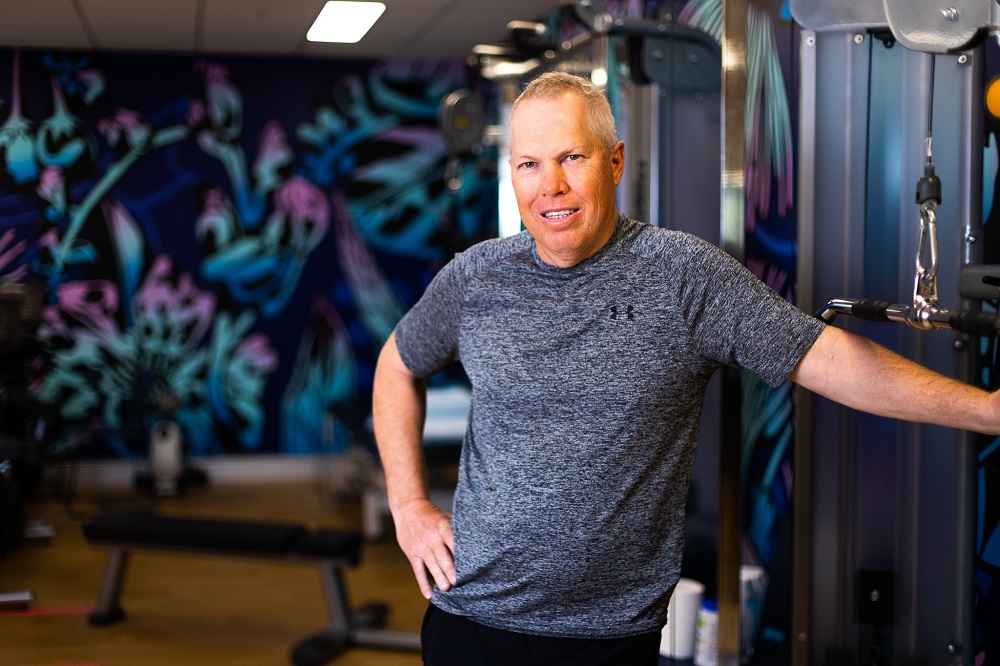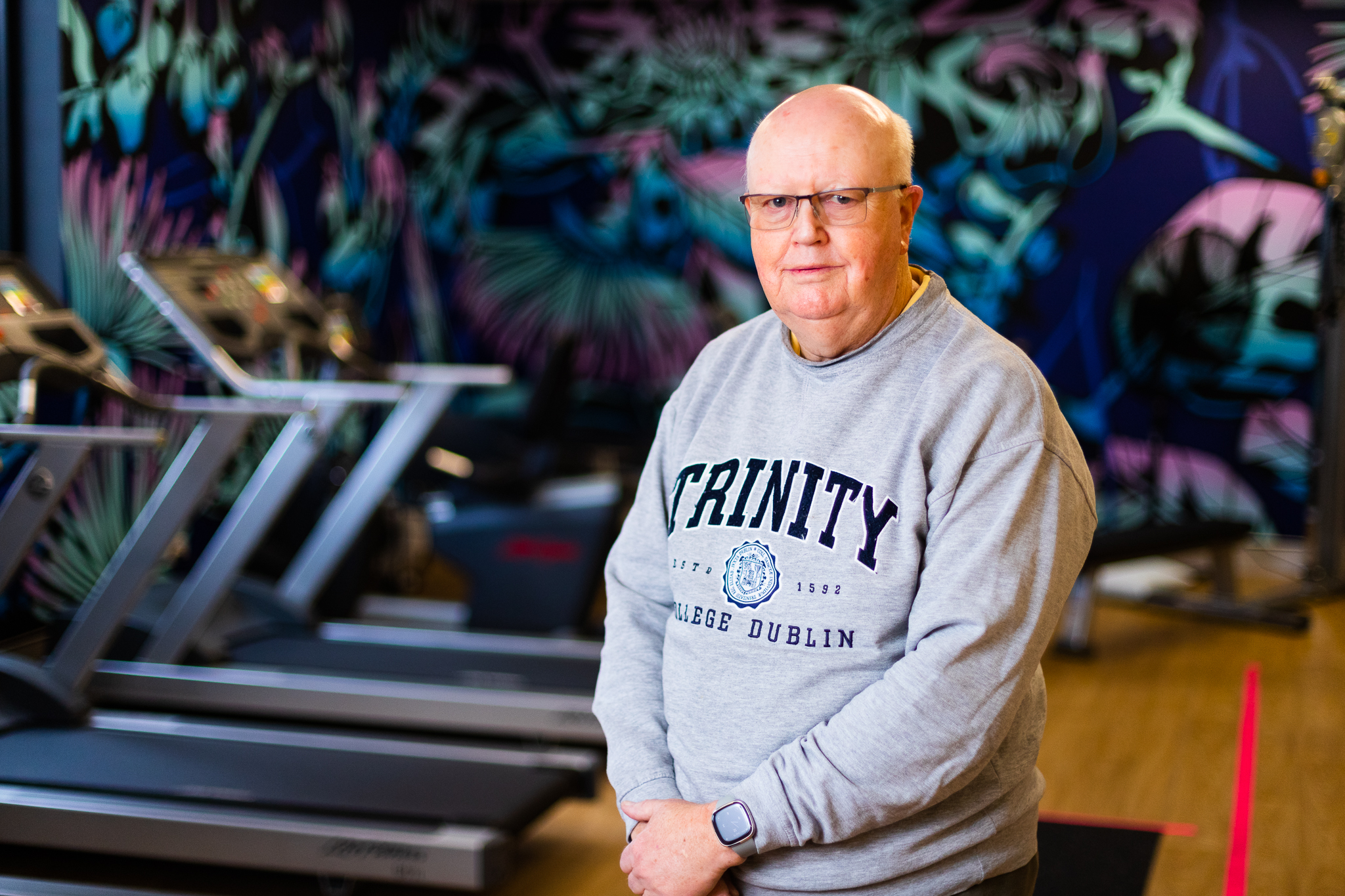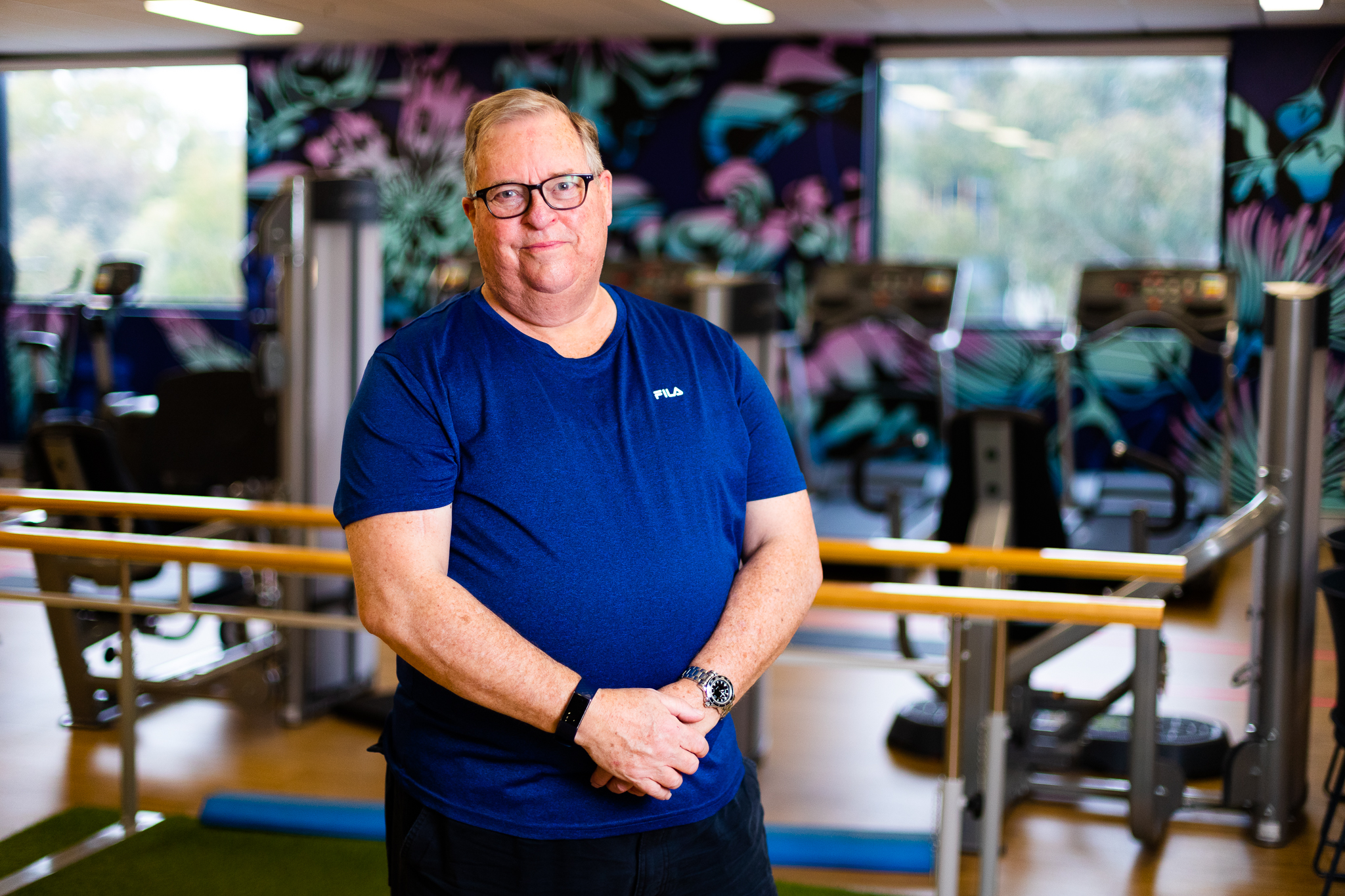Community Connections
Cancer care helping men thrive
“It was six months before I could walk to our local shops.”
Bob Alchin wasn’t prepared for the side effects of surgery to have his prostate removed.
He had been going for regular blood tests and was diagnosed with prostate cancer in December 2020, before undergoing surgery in March 2021.
“The most difficult thing to cope with was incontinence,” Bob says. “One morning, I just burst into tears when I was sitting at the kitchen bench, eating my breakfast.”
Bob is taking a mild antidepressant daily and feels like there is a need for more follow-up care to help men cope with the side effects of treatment.
Clinical Chair in Nursing at the University of Canberra’s Faculty of Health, Professor Catherine Paterson, strongly agrees.
Catherine who co-chairs the University of Canberra’s PACES (PREHAB|ACTIVITY|CANCER|EXERCISE|SURVIVORSHIP) research group, is leading a new study to see how pre-treatment care and recovery care can be improved for men like Bob.
“We want to address the support needs that aren’t being met, and help people optimise both their physical and psychological recovery after major surgery,” Catherine says. “This could also help reduce the length of their hospital stays.”
The study is funded by the Prostate Cancer Foundation Australia and is recruiting men diagnosed with prostate cancer who are actively seeking surgery. The trial will be randomised.
“Our nurse-led model of care is safely embedded within a team of varied healthcare professionals,” Catherine says.
“This model of care will provide patients with a self-managed care plan, information support, a tailored exercise program and specific advice around pelvic floor exercises – because incontinence is something many men who undergo this surgery often deal with. Participants will also get advice on diet and nutrition, cutting out smoking and alcohol, relaxation, and sexual wellbeing.”
Bob thinks that a more focused and holistic approach to prepare for such surgery would be a huge improvement and help patients to cope and recover.
“We did get a booklet, but I just think that you should be warned more about what effect things like incontinence can have both physically and psychologically, because it was just like a tap that couldn’t be turned off,” Bob says.
Although Bob felt he could have been better informed about the physical and psychological challenges he would face after surgery, his decision to attend regular exercise sessions at UC’s Cancer Wellness Clinic have helped him attain a more positive mindset.
“My surgeon recommended that I participate in exercise sessions at the UC clinic, which I have been doing once a week since May 2021,” he says.
“I’m definitely in a much better physical and mental state now than I was at this time last year.”
David Wicks is another client who attends the exercise sessions, and he describes them as “better than a pill”.
The 57-year-old was diagnosed with stage four prostate cancer, which had also spread to his lymph nodes, in February 2022.
“My urologist said, ‘This tumour off your prostate is one of the worst I’ve seen, and I’ve seen a lot’,” David says.
“I'm fairly positive and I tend to just roll with the punches – but it's been really distressing.”
David says his oncologist recommended he attend the exercise sessions ahead of undergoing six rounds of chemotherapy and ongoing hormone treatment.
“You would never get me in a gym before, but I'm a bit of a convert now,” he says.
“[Attending the clinic means that] instead of being sent home to rest on the couch, you’re told to exercise and get your blood pumping – and I feel much better for it.”
Clinical Assistant Professor of Exercise Physiology at UC and PACES co-chair Dr Kellie Toohey says exercise as part of a multidisciplinary care team is key to cancer recovery, in reducing and managing treatment-related side effects.
“It means people can be in the best shape to get through their treatment, and come out the other side with strength, fitness and function to be able to carry on with life,” she says.
Research carried out by Kellie and the PACES team found that if people with prostate cancer exercised regularly, they were likely to experience improvements in fitness and strength and reduced fatigue. Greater improvements were seen in programs longer than 12 weeks.
“Exercise improves physical and mental health – this is something we see in our research and in our clinics daily,” Kellie says.
The exercise sessions at UC’s Cancer Wellness Clinic are helping Rolfe Hartley regain his balance and muscle strength
The 70-year-old had his prostate removed in September 2020 following a prostate cancer diagnosis.
He also underwent radiotherapy and chemotherapy, and is receiving ongoing hormone therapy, which can come with a raft of side effects like hot flushes, night sweats, weight gain and loss of muscle mass and strength.
“I lost a significant amount of muscle mass, and my balance was extraordinarily bad,” Rolfe says.
Rolfe wants to see more awareness around the prevention and treatment of what is now the most common cancer in men in Australia.
“It is a major killer of men and if it goes too far without treatment, it will not be curable,” he says.
“Men need to be conscious of it and get tested, and the government needs to recognise prostate cancer like they do breast cancer, when it comes to testing and treatment options.”
His sentiments are echoed by another wellness clinic client, Iain Lumsden, who was diagnosed with prostate cancer in January 2021, after going to the doctor to test for rheumatoid arthritis.
Iain wants men to understand that checking for prostate cancer is “not necessarily a ‘stick up the bum’ thing” – instead, it starts with a blood test known as a Prostate-Specific Antigen (PSA) Test.
“Don’t be afraid to get it done,” he says.
Prostate cancer has overtaken breast cancer to become the most common cancer in Australia.
Data from the Australian Institute of Health and Welfare estimates that 24,217 Australian men will be diagnosed with prostate cancer in 2022.
“As the number of men diagnosed with cancer continues to rise, more men will receive treatment and subsequently face the resulting physical and psychological impacts,” Catherine says.
“The PACES research group is dedicated to improving cancer care, to help patients stay physically and mentally strong through their treatments and recovery and improve quality of life.”
Words by Emma Larouche, photos by Tyler Cherry.
In celebration and support of PACES Research Group and its globally recognised cancer care research focused on thriving, not just surviving, the University of Canberra is excited to introduce Thrive – A Celebration of Hope, a lunch at the National Press Club filled with incredible individual, inspiring stories, and a common goal of changing the lives of those impacted by a cancer diagnosis for the better.